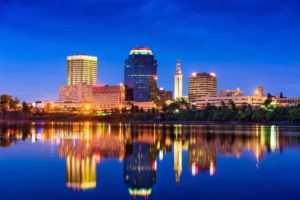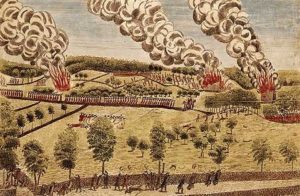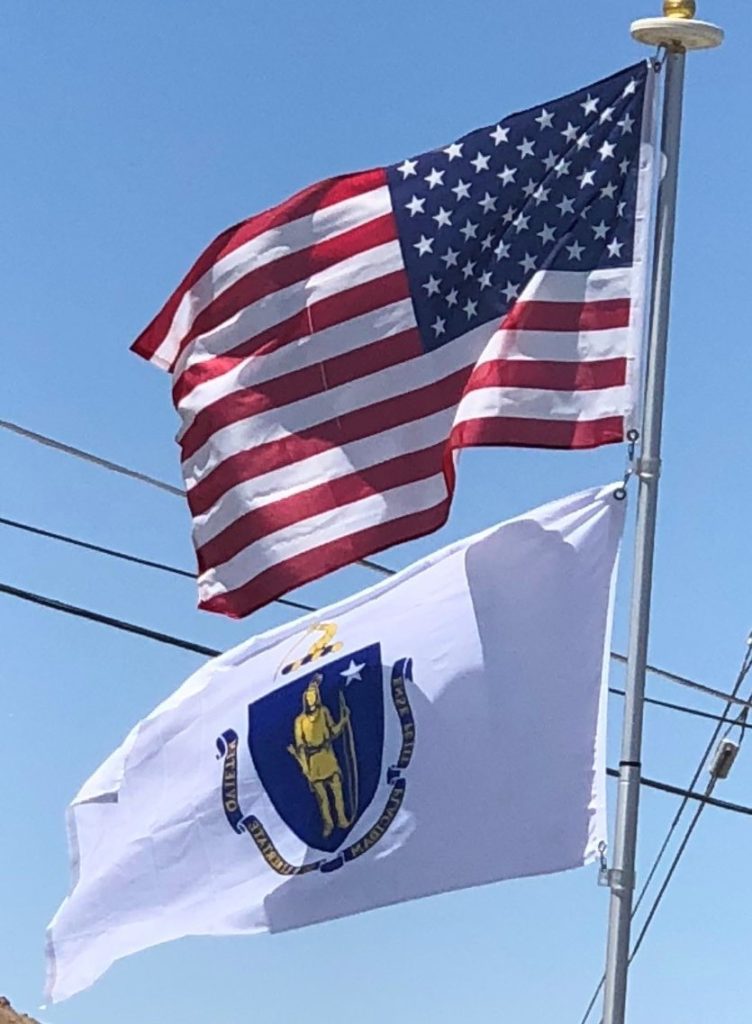
Additional Puritan colonists, so named for their belief that their form of religious worship was more “pure” than that of the mainstream Anglican Communion, arrived later and established the Massachusetts Bay Colony at present-day Boston. The goal of the these settlers was to establish an ideal religious society. This strict interpretation of what was correct in terms of religious worship would lead to dissent, which was harshly suppressed and ultimately resulted in the formation of the colony of Rhode Island as a home for dissenting Puritans.
The colony at Massachusetts Bay was a royal charter colony, unlike the one at Plymouth.
The event known as the “First Thanksgiving” was celebrated by the Pilgrims after their first harvest in the New World which lasted for three days. The Pilgrims were soon followed by other Puritans, who established the Massachusetts Bay Colony at present-day Boston in 1630.
By 1641 Massachusetts had expanded inland significantly, acquiring the Connecticut River Valley settlement of Springfield, originally part of the Connecticut Colony, but due to disputes within the town chose to become part of Massachusetts. This acquisition established the southern boundaries of Massachusetts.

Finally, in 1691 the two colonies in the area, Plymouth and Massachusetts Bay were united, along with present day Maine, previously divided between Massachusetts and New York, into the Province of Massachusetts Bay. Maine entered the United States as its own state in 1820, the 23rd state to do so.
Massachusetts was to become a focal point in the movement for independence from Great Britain. This unrest had a long history as colonists in Massachusetts had long had uneasy relations with the British monarchy. This unease was perhaps most openly seen when open rebellion broke out as early as the 1680s.
Other famous pre-revolutionary events that occurred in Massachusetts include the Boston Massacre in 1770, and the 1773 Boston Tea Party. In 1774, the Intolerable Acts targeted Massachusetts with punishments for the Boston Tea Party and further decreased local autonomy, increasing local dissent. Anti-Parliamentary activity by men such as Samuel Adams and John Hancock, followed by reprisals by the British government, were a primary reason for the unity of the Thirteen Colonies and the outbreak of the American Revolution in 1775.
The Battles of Lexington and Concord initiated the American Revolutionary War and were fought in the eponymous Massachusetts towns.

Future President George Washington took over what would become the Continental Army after the battle. His first victory was the Siege of Boston in the winter of 1775–76, after which the British were forced to evacuate the city.
On February 6, 1788, Massachusetts became the sixth state to ratify the United States Constitution.
During the 19th century, Massachusetts became a national leader in the American Industrial Revolution, with factories producing textiles, shoes, tools, and paper. The economy was transformed from one based primarily on agriculture to an industrial one, initially making use of water-power and later the steam engine to power factories.
